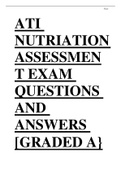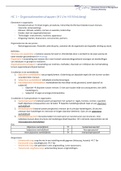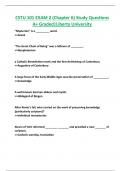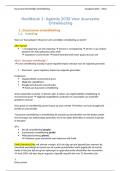Summary
Summary AQA A-level Philosophy 3.3 Metaphysics of God complete notes
- Institution
- AQA
Notes and essay plans for the entirely of AQA A-level Philosophy 3.3 metaphysics of God. Notes written out for every bullet point on the specification, my complete notes that I memorized for the exam with a brief essay plan for each purple heading.
[Show more]












